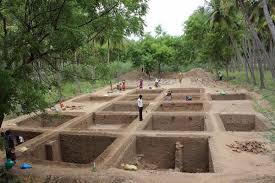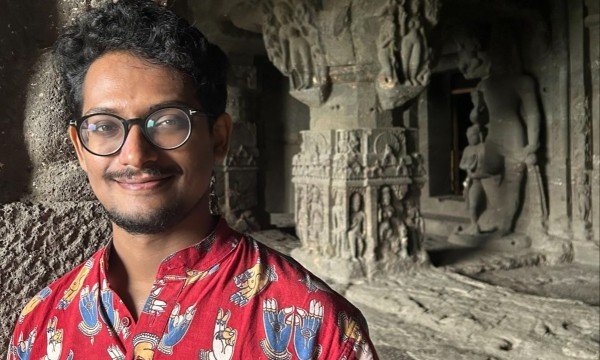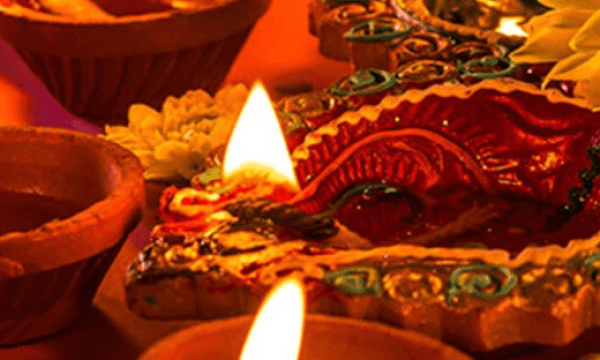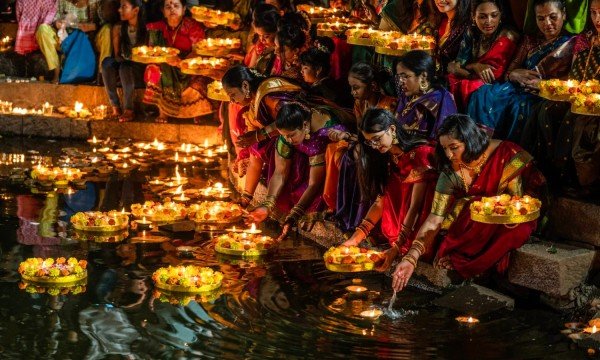
Pandian Nedunchezhian II, also known as Thalaiyālangānathu Seruvendra Pandian Nedunchezhian, was honored by his chief bard Māngudi Kizhār on his Mathuraikkānchi. It is an epic set in the city of Mathurai and written in Kānchi thinai.
Pandian Nedunchezhian won many battles to ascertain his supremacy over the other kings. He conquered every one of them and unified the ancient Tamil country. He was a great warrior and emerged as a perpetual victor in all the battles he engaged.Of all the battles he engaged in, the most significant one was the Thalaiālangānam battle. Because of this, Chief Bard Māngudi Kizhār Maruthanār sang Mathurakikāanchi. It is comprised of 782 stanzas and belongs to the Ten idyll genre of Sangam classical literature.
Mathuraikkānchi:
Mathurai +Kānchi= Mathuraikkānchi.
Mathurai is the place and Kānchi is the Thinai (discipline) upon which this epic was constructed. Mathurai is the capital city of Pandyan Nedunchezhian. Tholkāppiam (an ethnolinguistic anthropological anthology on the Paleo/Palaya Tamil) classifies the external subject matter into seven thinais (discipline). Kānchi thinai deals with the unsustainability of life. Even though this epic on Pandyan Nedunchezhian talks about his valor, kingdom, people, city, conquests and his legendary genealogy, its main theme is centered around the unsustainability of life.
Mathurai has been referred by many throughout history. Pliny the younger ( 112 CE) the Roman historian referred to Mathurai in his work. It was also mentioned in the Periplus of Erythraean Sea by the Greek geographer( 64 BC). Ptolemy (168 CE) had made special references in his book on Madurai as well.
Maruthanār started his epic with nature veneration and prosperity. He made special references to the Rain, Sun and the Stars in his introduction. He then starts off with the Pandya Genealogy, his army (4 kinds) and his list of conquests. The status of the enemy kings/kingdoms and his reward for the Gallant soldiers.
The city of Mathurai and its people were dealt with in great detail. The 5 kinds of landscape and the people, the culture, and the routine life is explained in great detail. He then explained the various religious affiliations of the citizen and their temples. It's surprising to find that there were Samana, Buddhism and Anthanar schools around Mathurai. The court, palace, the ministers and the governing councils were also detailed. The life of the common people, courtesans, merchants were also recorded. The nightlife and the day after the night were recorded with interest. Finally, the most important aspect of this epic was the advice to the king about the unsustainability of life.
Listen O’Lord of the Victorious battle (அடுபோர் அண்ணல் கேட்டிசின்)
அன்னாய் நின்னொடு முன்னிலை எவனோ
கொன் ஒன்று கிளக்குவல் அடுபோர் அண்ணல்
கேட்டிசின் வாழி கெடுக நின் அவலம்
கெடாது நிலைஇயர் நின் சேண் விளங்கு நல் இசை (197 – 209)
What can I say to you? I will tell you one more thing, O lord
of murderous battles! Listen! May you live long!
May your sorrow perish! May your fine fame
spread far and never be ruined!
(As Translated by Vaidehi Herbert, Hawaii)
The hallmark of this epic is the advice given by the Chief Bard to the King, The most victorious Pandyan Nedunchezhian II. He addresses him as “The Lord of the victorious battle" saying listen to me, uttering a lie, you will never choose, even you were lured with upper world and nectar. Neither you fear the upper world kings with wide worlds and ocean as their boundary. If erring leads you to the heaps of wealth stored in the southern mountains by the upper residing place dwellers, you will reject it. Uncomparable, I shall say O’ Lord of the victorious battle listen, may you long live, your misery be perished and your fine fame flourish forever
பணை கெழு பெருந்திறல் பல்வேல் மன்னர்
கரை பொருது இரங்கும் கனை இரு முந்நீர்த்
திரை இடு மணலினும் பலரே உரை செல
மலர்தலை உலகம் ஆண்டு கழிந்தோரே (204 – 237)
Many such famous kings owning
armies with spears and large drums ruled and died
in this wide world, their numbers larger than the
sand brought to the shores by the ocean waves.
(As translated by Vaidehi Herbert, Hawaii)
He further explained to the king that the unsustainability of the life is such that, a King as valorius as you with large armies with spears and large drums ruled the earth and died. If you ask me to count their numbers, it is like trying to count the number of sand grains brought by the waves to the shore time after time.
Genealogy and the Gruesome battlefield scenario
In the lineage of Tholmuthu Kadavul-Sivan (தொல்முது கடவுள் பின்னர் மேய), some generation after the Thiruvir(l) Nilantharu Pandian, the Pandian king, Who annexed the far fetched land (Gangetic plains), you appeared with the title of “The King of the Southerners.” You fought fearsome battles and won them. Those who resisted, wilted under your prowess and you made sure righteousness prevailed in their territory. Those who acceded, you let them rule at their own will. The battlefield looked gruesome after the war was won. The headless corpse raised in the desire to dance in Thunangai (A kind of dance movement in trance with the hands by the side). The lady ghouls devour the human flesh skewed on the tusk of the battle trained bull elephant. The ritual cook cooked the blood of the enemy kings on the three dead man’s head as the stove with the severed human hand as the spatula.
The City
முழவு இமிழும் அகல் ஆங்கண்
விழவு நின்ற வியல் மறுகின் (327-328)
In the huge city where drums roar constantly,
festivals are celebrated on the wide streets,
(As translated by Vaidehi Herbert, Hawaii)
In the city, they had both day and night markets. The bards, wealthy people, courtesans and consumers moved constantly both day and night. The sea merchants from many countries came there to buy their stuff and spoke varied languages. Many kinds of food are available for consumption. All kinds of blends with fragrance, chunks of jack fruits and mangoes. All kinds of fruits and vegetables grown in wild vines. Meat cooked with rice praised by many (புகழ்படப் பண்ணிய பேர் ஊன் சோறும்/Biriyani). Sugar cubes, Tender sprouts and tuber grown under the ground are all available to relish.
The courtesans who decked their head with multiple layers of fragrant flowers moved around freely to lure the wealthy young men to unite. They walked with a sway with rounded bangle on their hands and wore fine clothes.The shy housewives were singing various melodies at their home with music flowing from their seven-stringed lutes. Elderly ladies were selling all kinds of fragrant stuff to the commuters.
The marketplace is full of artisans who specialize in their trade and sell their stuff. The goldsmith who makes fine jewelry and verify the gold with their touchstone. The seashell ornamentalist who cuts and shapes the conch into beautiful bangles. The cloth merchants. The copper worker and blacksmith with their products were available for the merchants to be exported overseas. The market never gets short of the commodities, they are being constantly refilled as the stocks get cleared. All the sea merchants ships were docked at the Korkai port, which is the chief maritime trade port. The port city of Korkai was staked with all kinds of conch pearls and sea produce ready to be loaded into the ship.The fine citizens of the Korkai live in perpetual happiness and praised their king for their fortune.
Praising the King
களம் தோறும் கள் அரிப்ப. . .751
மரம் தோறும் மை வீழ்ப்ப
நிண ஊன் சுட்டு உருக்கு அமைய
Maruthanār started to praise the king, Pandian Nedunchelzhian II, by saying in his country toddy was extracted everywhere and the goat was slaughtered under every tree. Fatty meat was roasted with ghee and the colorful fume emerged from the roasting process rose above the sky and spread wide and it looked like rain clouds. The land the king ruled was previously ruled by the his ancestor Palssālai Muthukudumi, a famed Pandian king known for his ritualistic bonfire. Another Ancestor Thiruvir Nilantharu Pandiyan, who is known for the expansion the Pandian dynasty into new territory. The Pandian kingdom always enjoys the association with its fine teachers and the kings have an enchanting relationship with the learned wise people.
He further stated that you being a king of such genealogy praised by many, you increase the wealth of the country and thereby increased the number of the citizens under your care. You learned many books and attained fame like the Sun amidst the ocean, like a moon in the middle of many bright stars. You flourished by surrounding yourself with many relatives and ministers. You were a great warrior(māran) wearing beautiful garland and advised by five councils. You were the leader of the young Kosars (warrior klan probably the Kushites/Kushanas of the Nile Valley) who kills the enemies with their sword upon your order. You were known for the great assembly and the brave chieftains that surround you.
இலங்கு இழை மகளிர் பொலங்கலத்து ஏந்திய
மணம் கமழ் தேறல் மடுப்ப நாளும் . . .
மகிழ்ந்து இனிது உறைமதி பெரும
வரைந்து நீ பெற்ற நல் ஊழியையே (779 – 782)
Maruthanār concluded his epic with these closing statements: Thy shall enjoy the flavored selected liquid in a golden bowl served by the damsels who wear fine jewels. O, Lord, life is such that (Short/sweet), thy shall relish it every day and such is your good destiny (நல் ஊழியையே). End of Mathuraikkānchi.
-Dr. Prem Shanmugam
All images courtesy of: Google images.

























